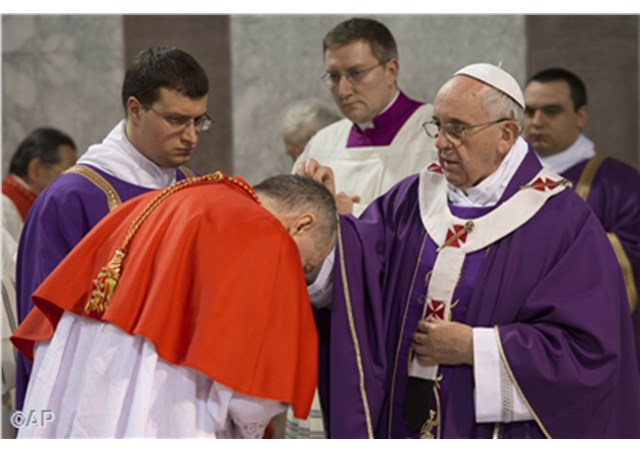
Repentance means to think in a different way

As we start Lent, it is clearly brought across to us that this is a season of repentance. We pray at the beginning of Mass for Ash Wednesday: “May this season of repentance bring us the blessing of your forgiveness”. In the first reading, the prophet Joel takes up the same idea, inviting us to come back to the Lord with all our hearts, fasting, weeping and mourning. And before putting the ashes on the foreheads of the people, the priest asks God “to bless these ashes which we will use as the mark of our repentance”. All of this is in keeping with the challenge contained in Jesus’ first words as he proclaimed the Gospel: “The time is fulfilled and the Kingdom of God has come near. Repent and believe in the Good News” (Mk 1:15).
What do we think of when we hear the word “repent”? Do we almost automatically think of our sins and bad habits, of the need to be sorry for our sins, of the hard work before us to break our bad habits? It may be very necessary for us to do these things, but is that what repentance really means? Is Lent just a time for reminding ourselves of our weaknesses? Is it a time when we concentrate on ourselves as weak and sinful people and on God as being unspeakably holy and sinless, utterly remote from us? Is this the Good News that Jesus taught and for which he gave his life on the Cross?
If we think like this, then it may be that we have narrowed down the meaning of the word “repent”, until it has become negative and almost threatening. The word literally means “to think beyond the way we think now, to turn round and think in a different way”. The call to repentance by Jesus, and the real call of Lent, is to take a new look at God, to refresh our image of him. It is to come to a vivid realisation that God loves us now, as we are, and before ever we change. The main thing in Lent is not that we should do things for God but that we should become more aware of how much God is doing for us. Each day we want to see more and more that God loves us powerfully, unfailingly, permanently. In the words of today’s first reading, we want to bring home to ourselves that God is all tenderness and compassion, rich in graciousness and ready to relent.
The real repentance of Lent is to turn and look into the eyes of Jesus and see there how much he loves us, how totally forgiving he is. It is to let God be God in every aspect of our lives. And from this new awareness of God’s love there comes the power to turn our backs on sin, to turn away from what is wrong and to embrace with our whole being all that is good.
Lent is also a time when we need to turn round and think in a different way about the pressing issues of our times. It is a time for renewing our commitment to protecting human dignity and promoting human rights. This means addressing the grave problems of poverty, hunger and unemployment, not least by protecting the abundant resources of the earth and sharing them more equitably. It entails advancing the status of women, protecting children against abuse, and ending the AIDS epidemic. It means solving conflicts through negotiation without recourse to weapons and overcoming the deadly corruption and self-seeking that so often characterise public office.
In each of these areas, God is calling us to repent, to think beyond the way we think now. Lent is a time when we try to do so with more earnestness and more confidence that in these struggles God is on our side. If we try to do this, then we are doing what is true. We are coming to the light so that it is more clearly seen that our works have been done in God (Jn 3: 21).
(By Fr Michael Kelly SJ, Zambia/African Jesuit AIDS Network (AJAN)
e-mail: engafrica@vatiradio.va
| All the contents on this site are copyrighted ©. |


